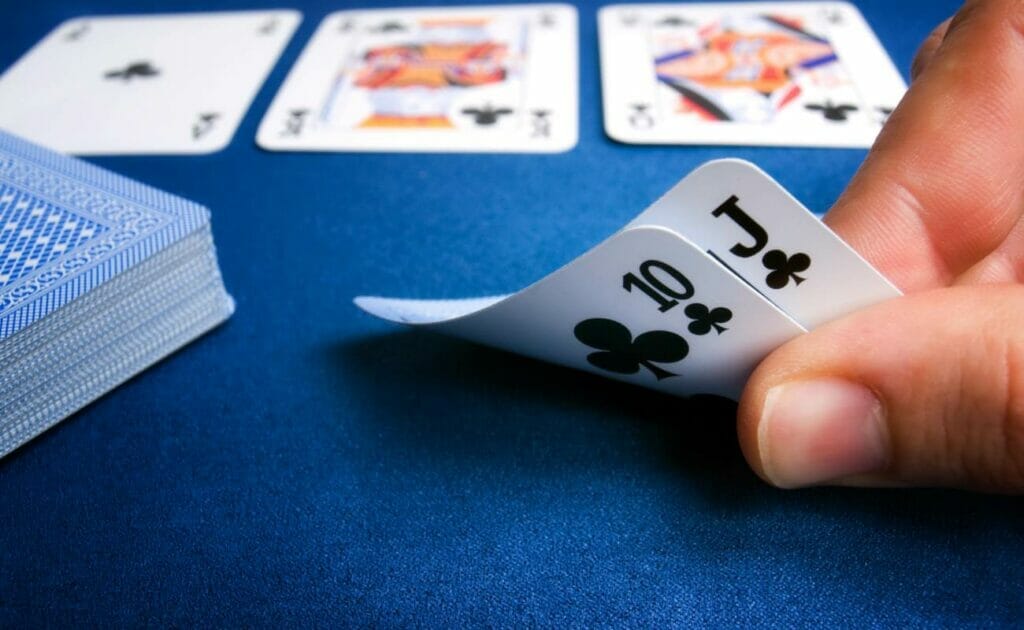
If you’re a competitive poker player who’s serious about winning, you’ll undoubtedly be focused on improving your game. A big part of that is mastering the mental game of poker. This basically means improving your mental health to improve your poker performance, whether that means learning new skills, or learning how to replicate the habits of successful poker players to manage tilt, the negative state of mind that can affect all players.
Discover three habits of professional poker players that you can use to improve your poker skills and maintain the right mindset in offline and online poker games.
Understanding the Importance of Study for Your Poker Mindset
While there is a certain amount that you can learn about poker just by playing, your play really won’t improve unless you take the time to study. If you’re unprepared for the game or don’t have a thorough understanding of how to play it and navigate certain challenges, it can negatively affect your mindset for that poker game. So, studying poker to get a complete understanding of the game and how it’s evolving is a key contributor to the cool, calm, and collected mindset of a poker player.
But what does “study” mean to a poker player? In the past, this would have meant finding books that successful professional players had written to help you understand the game. Today, the meaning of poker study has evolved far beyond this, and players have access to numerous poker training resources to help them improve their game and keep up to date on changes in the industry.
Here are some of the different resources you’ll want to consider when taking the time to study and improve your game.
Books
Whether these are new or old, many excellent poker titles can teach you how to improve your understanding of the game.
Videos
Today, there is a wealth of online video content on YouTube that can help you increase your level of skill. Not all of this content is created equal, so you will need to filter through it or look for recommended channels with high-quality content.
Coaching
Many poker pros have launched their own coaching websites to help you get better at poker. Many of these sites don’t only offer you digital resources but also dedicated poker coaches who can teach you how to play better. Check out reviews and comments on social media about which sites have offered the most value to their customers before you hand over your hard-earned money. There are also AI-driven poker training tools that can help you analyze and improve your play.
Reviewing Your Own Play
While it’s better to have a more skilled player to assist you with this (consider looking for groups and communities on social media if you can’t afford dedicated coaching), you may also be able to identify weaknesses in your own play if you can get your hands on a poker solver that you can use to help you review your own games.
No matter what tools or methods you use, all the best players understand that they are always learning, and this includes time dedicated to studying the ins and outs of this incredibly complex game.
Taking the Time To Practice

It doesn’t help at all if you just put all your effort into learning without understanding how to apply that knowledge in an actual game. After you’ve dedicated some time to studying, it’s time to put your newfound insight into practice. If you’re interested in mastering a new skill that you’ve been studying, you may want to try to get to grips with it in some free or low-cost poker games before you decide to join in high-stakes games. Once you have practiced a particular skill and have developed a proper understanding and application of it, your mind won’t have to work so hard to execute it, freeing up mental resources that you can then commit to other aspects of the game.
Developing Your Mental Strength
The poker psychology behind tilt, or entering a negative state of mind that can cause you to make poor decisions, can affect every level of player. The most successful poker players have learned to minimize the impact of tilt as much as possible or avoid it entirely thanks to the work they put into working on their mental stability.
Here are some very quick mental wellness tips to help you manage tilt:
- Learn how to recognize tilt in yourself so that you can take steps to avoid or mitigate it.
- Truly understand that you can play the hand you’ve been dealt perfectly and still lose.
- Keep in mind that even if you lose, you’ll still have gained invaluable experience that can help you improve in your next game.
- If you find yourself getting frustrated or angry, use meditative breathing techniques to help calm yourself down.
- If you find that you are unable to return to a more level-headed state of mind, take a break.
With the ability to keep negative thoughts and emotions in check, you’ll lower your risk of making a bad decision rooted in a negative frame of mind.
Bad Mental Habits That Can Hurt Professional Poker Players
Just as there are good habits that can help you as a professional poker player, there are also bad habits that can hinder your success. Here are three of the common pitfalls that even the pros must avoid.
Thinking in Absolute Values
Poker is a game of relative values where hand rankings are concerned, so you don’t need an amazing hand to win — you just need one that’s better than your opponents’. Undervaluing your poker hand, or overvaluing it and assuming just because it’s a strong hand, you’ll win, can lead to costly mistakes.
Using Bad Cards as an Excuse
Blaming poor cards for losses is a common but unhelpful habit. Even the best players get lousy hands. What sets them apart is spotting opportunities and making the most of what they have (and making sure that their casino etiquette doesn’t falter just because they lost a hand).
The Fear of Making Mistakes
Mistakes are human nature, and they’re bound to come up in your poker game, whether it’s due to gambler’s fallacy, reading a player wrong, or accidentally making a mistake with your hand rankings. Holding yourself back just because you’re scared it won’t turn out the way you planned can lead to missed opportunities. Some players hesitate to participate unless they are absolutely certain of victory (or as certain as they can be). They assume that other players follow the same cautious approach. In reality, poker involves calculated risk-taking. The best players are willing to trust the odds and act when it looks like the odds are in their favor, even if there’s no guarantee of success.
Avoiding All Risks
In poker, as in life, embracing calculated risks and learning from your experiences, even if it means making mistakes along the way, is a key element of success.
Play the Best Online Poker at Borgata Online
Whether you’re learning how to play poker, want to practice good mental habits, or are just looking for an online poker site to play poker online, you can do it all at Borgata Online. The site offers players a great place to enjoy casual and competitive poker games. “Pull up a seat” at any of the virtual tables, or sign up to take part in any of the thrilling online poker tournaments on offer.
Register at Borgata Online to join in all the poker action.
